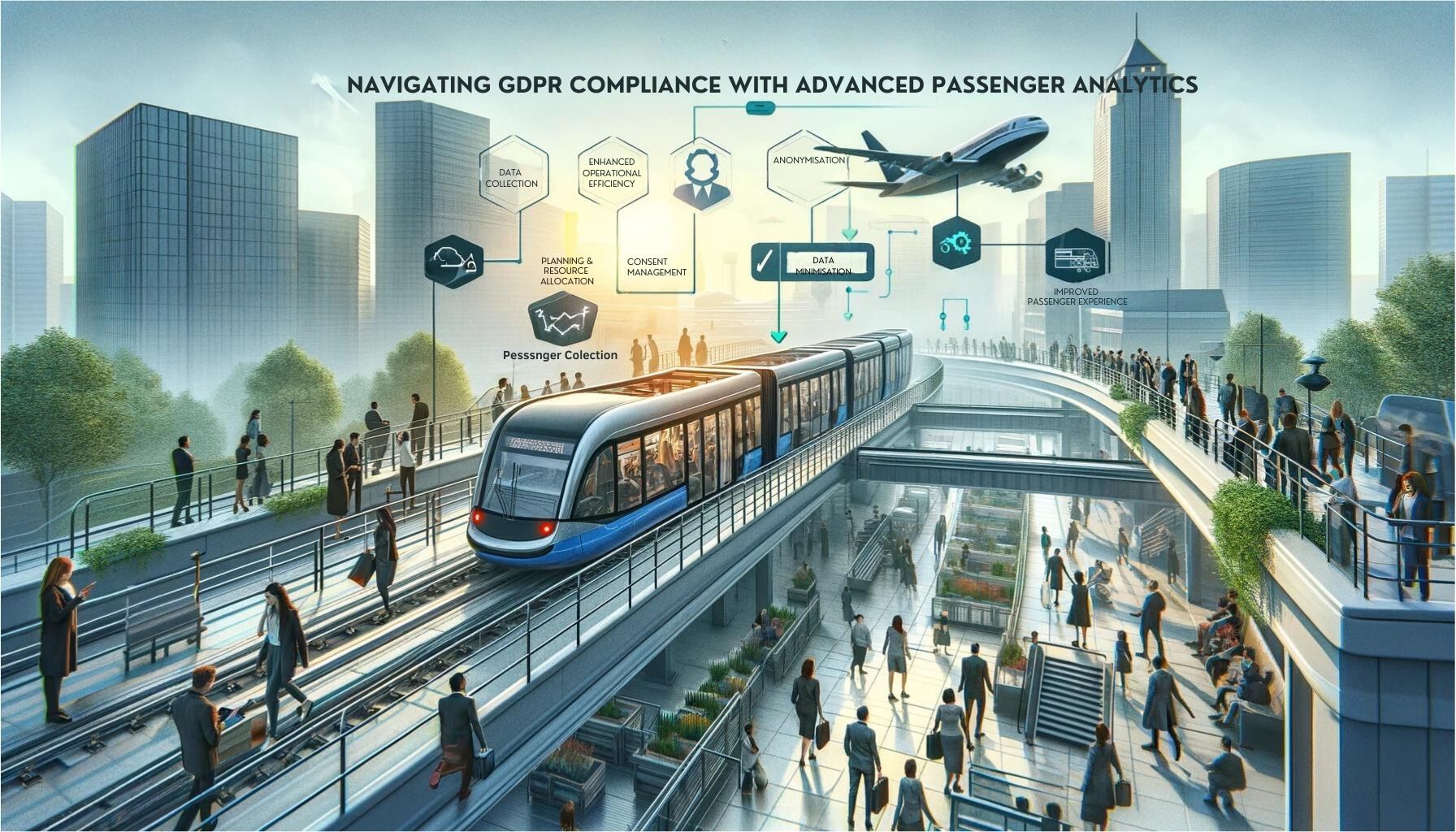
Navigating GDPR Compliance with Advanced Passenger Analytics
Introduction
In the evolving landscape of public transportation, the implementation of advanced passenger analytics has become crucial for enhancing operational efficiency and passenger experience. However, with the introduction of strict data protection laws such as the General Data Protection Regulation (GDPR), transportation entities must navigate the delicate balance of harnessing data while protecting individual privacy. Biomatch FR™’s innovative technology offers a solution, ensuring GDPR compliance in passenger analytics without compromising the utility of the insights garnered.
Techniques for Data Collection and Analysis
Biomatch FR™ uses facial recognition technology to collect data on passenger flow, density, and behaviour within public transportation systems. The technology is designed to capture and analyse data in a way that respects privacy while providing actionable insights. Here’s how it works:
- Anonymisation: Biomatch FR™ systems are programmed to anonymise data at the point of collection. Facial images are processed to extract necessary analytical data without retaining any personally identifiable information (PII).
- Consent Management: In scenarios where personal data must be retained, Biomatch FR™ implements robust consent management processes. Passengers are informed about what data is collected, how it will be used, and their consent is secured in compliance with GDPR requirements.
- Data Minimization: The technology focuses on collecting only the data that is necessary for specific analytical purposes. This approach not only complies with the GDPR’s data minimisation principle but also reduces the volume of data that needs to be securely managed.
Importance of GDPR Compliance
Compliance with GDPR is not just a legal requirement but a critical component of maintaining public trust. When passengers feel confident that their privacy is protected, they are more likely to support and feel comfortable using public transportation services. Furthermore, GDPR compliance helps avoid potentially hefty fines and legal actions that can arise from data breaches or non-compliance.
Impact on Transportation Management
The deployment of GDPR-compliant passenger analytics technology like that of Biomatch FR™ has a transformative impact on transportation management:
- Enhanced Operational Efficiency: Real-time data allows for the optimisation of service schedules, reducing wait times and avoiding over-crowding, thus improving operational efficiency.
- Improved Planning and Resource Allocation: Long-term data trends help in planning future infrastructure investments and in efficiently allocating resources where they are needed most.
- Better Passenger Experience: Insights into passenger behaviour can be used to enhance overall passenger experience, for example, by identifying peak times and adjusting services to reduce congestion.
Conclusion
The Biomatch FR™ approach to GDPR-compliant passenger analytics represents a significant advancement in the field of public transportation management. By ensuring that passenger data is managed with the utmost respect for privacy, while still providing essential operational insights, Biomatch FR™ is helping transportation authorities and companies navigate the complexities of modern data use in public services. This careful balance of compliance and utility paves the way for smarter, more efficient, and privacy-respecting public transportation systems.
